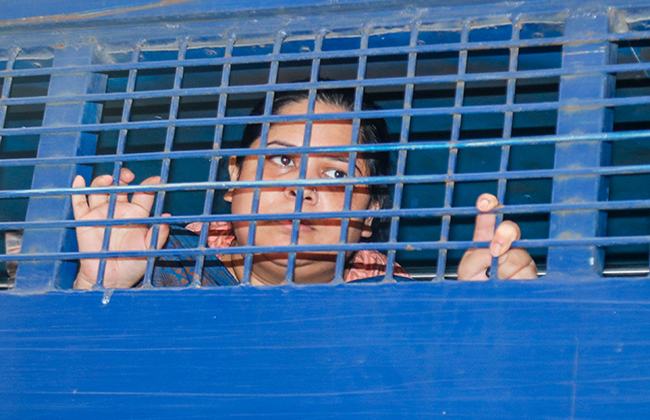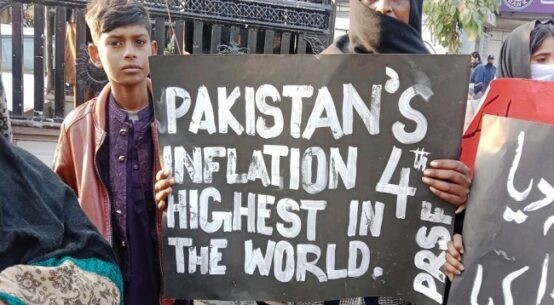
Journalist Rozina was not granted or refused bail by the court on her bail application on Thursday. She will have to wait till Sunday to hear the outcome of her bail appeal. Rozina had been held inside the Secretariat in a room of a senior official of the Health ministry for over 5 hours and faced harassment all captured by camera phones and globally distributed.
She was later taken to the thana and charged under the Official Secrets Act. The actions spawned a series of protests that went beyond the media and involved many particularly on Facebook, Bangladesh’s popular venting space. Meanwhile as heat rises and concerns about the impact of the arrest grows as it has become an international human rights issue, the embarrassment of the authorities is obvious. Foreign Minister Momen has said that the MOFA will have to face the impact of the “Rozina affair” and that the image of the GOB is being marred by the actions of a few inside the official world.
To many, it was a matter of press freedom, though no law allows anyone to purloin documents, secret or otherwise. But the media has always done this since its birth and possibly this practice will go on. To put it mildly, when the objective is to hunt down secrets, the nature of many being dirty secrets, law is not the main concern for the hunter, perceived public interest is. Many of such information actually come from sources inside the government.
Rozina has also said that she had received a call from her source and the rest followed. She had a regular supply anyway of such materials so the “source” was clearly very useful. However, it’s also possible that the source was used to set up a trap which found Rozina harassed and locked inside.
What exactly is this best called “media”?
These are hardly media questions because majority of media work doesn’t deal with secrets but public information. This information also doesn’t flow regularly and that creates a situation mistrust which encourages people to choose the path of shadows.
Public in general has a hate – need relationship with the media.. One wonders why there is so much expectation from the media , which is full of rather ordinary people like everywhere else. Why is the media expected to deliver miracles which will resolve long term governance flaws that have grown over the years when others can do little?
Surely the bureaucracy and the politicians and the law enforcers are smarter and more powerful. In fact the public itself has shown themselves to be more capable than all others but in the end, the media has become a strange scapegoat for everyone else’s sense of misery. Everyone is flawed but the media is blamed for not reporting flaws of choice. And hated as well for reporting the wrong flaws and not reporting the right ones depending on who is complaining.
But there is no such thing as a monolithic media which can be blamed as an institution. The owners and many of the leaders within media share mutual proximity. Most are close to the government as a matter of principle as businessmen are and some to the opposition but all to one privileged group or another. All the owners belong to the rich category and some working members are very well off too due to their connections. In fact a section has claimed that Rozina herself and her husband are into manipulating officials to get contracts. But the vast majority in media are middle class professionals who just want to finish a job and go home, no matter what their political views. .
Its true media has a role to play which is to focus on issues of public interest. The fight around Rozina which included political group loyalty as well was not about media freedom but more about the resentment against the privileged whether politicians, amlas and contractors. Media was the trigger but public anger was aimed at the governance structure.
It’s the lesson people in power at any time should know. It was not about Rozina but the public themselves who feel powerless and think what they say will be ignored. They saw in Rozina , their own face, never mind if she is guilty or not.
Social media has little impact on public life but it’s a great place to learn what the public thinks, even when the thinking is flawed. In the end, the public is the final speaker and is also the most arrogant but powerless part of the whole puzzle. What they also seek is power in direct or indirect terms. The public is not interested in learning how things happen or look into their own life and doing things but blame first. It has therefore become a culture of blaming emerging from frustration.
Rozina could just well be anyone else but because she was a media member and media workers took up the cause, like it or not , she has become an unlikely symbol of how many people perceive themselves in the governance space.
Grant Rozina bail and repair the governance machine as everyone;s machine is needed to seems to be the answer to the situation.
Afsan Chowdhury is a journalist, columnist and liberation war researcher. He received Bangla Academy Award in 2018 for his contribution to the liberation war literature.


